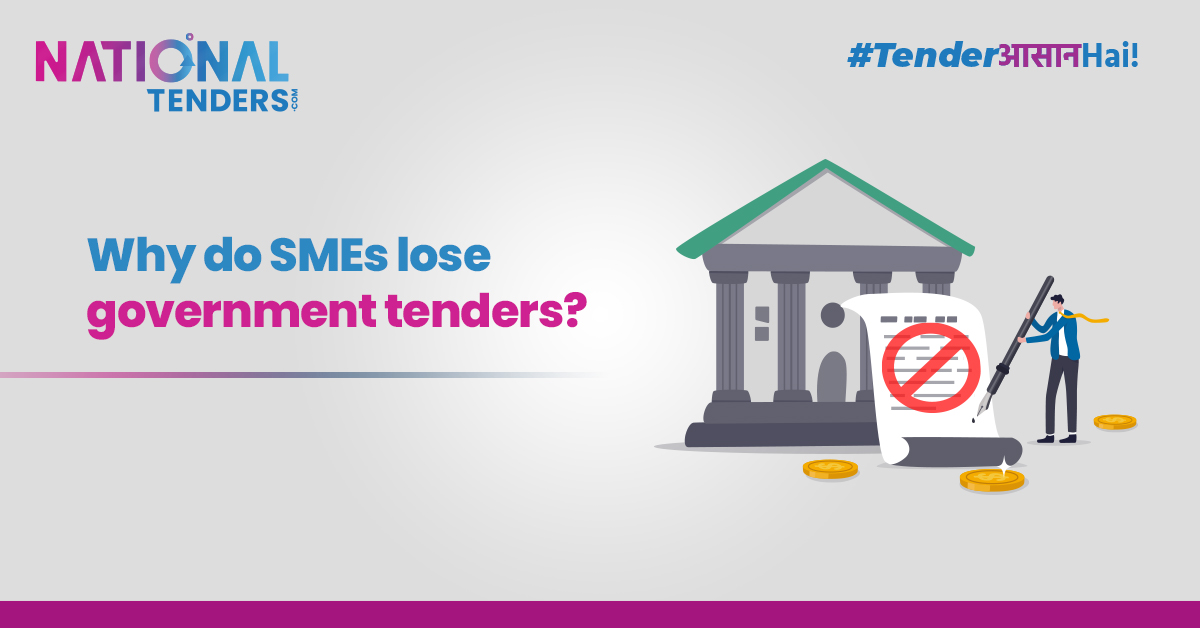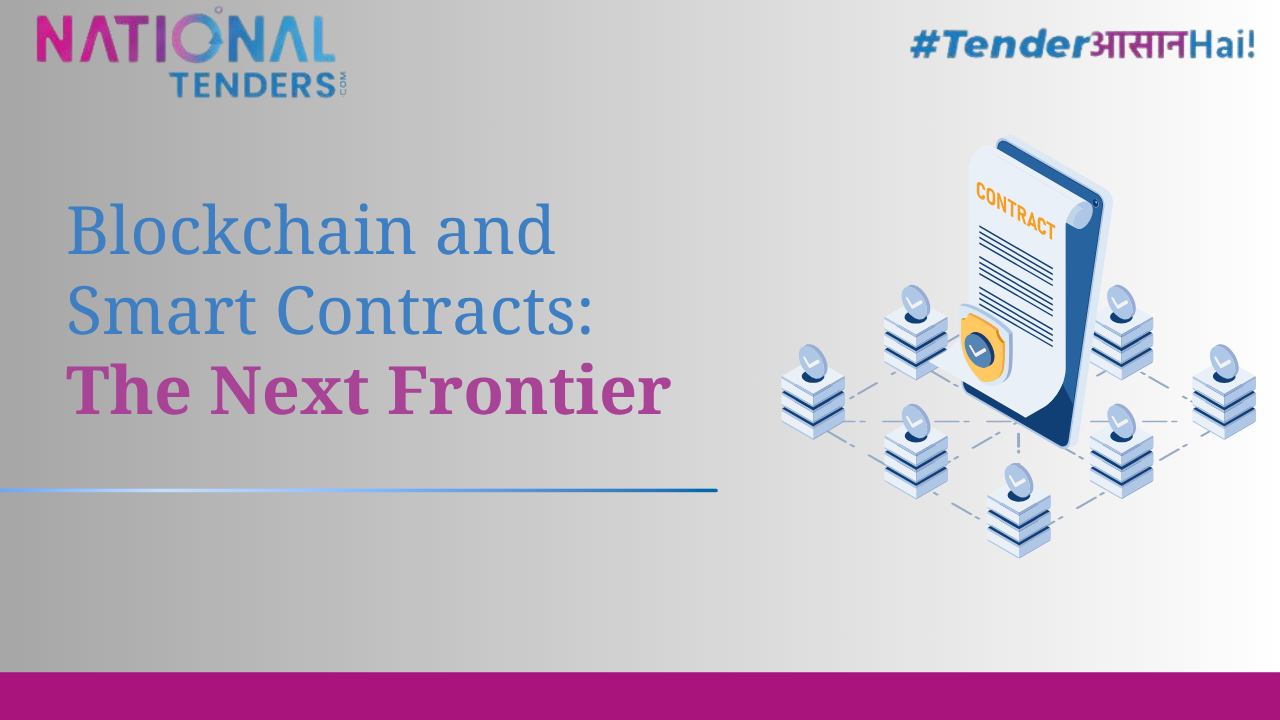- Home
- >
- Blog
OUR BLOG
A collection of stories about our people, our capabilities, our research, and the ever-changing face of our firm.

NationalTenders
Why do SMEs lose government tenders? | 14 Jun, 2023
Why do SMEs lose government tenders?
Government tenders are a major source of revenue for small and medium-sized enterprises (SMEs). However, many SMEs fail to win these tenders, even when they are qualified and have Small and medium-sized enterprises (SMEs) losing government tenders is a common problem faced by them. Many factors may contribute to this, including a lack of knowledge of the tendering process, inadequate experience in bidding, insufficient capacity to meet the tender requirements, and a failure to comply with the necessary regulations. Furthermore, SMEs may not have the necessary resources or expertise to provide the required level of service, causing a loss whereby the contract is awarded to larger and more established companies. Additionally, SMEs may offer lower bids in order to compete, only to later realize that their competitive pricing strategy didn't allow them to meet the requirements of the tender. To prevent such occurrences, SMEs should invest time in developing a thorough understanding of the tendering process, prepare adequately, contact the necessary stakeholders in advance, consider teaming up with other companies to combine resources and capabilities and ensure they have the capacity to deliver the proposed service. Ultimately, successful tendering requires extensive knowledge of both the tender process and the business requirements of the tender, as well as the necessary resources, expertise, and experience to compete on the price and quality of products or services. There are a number of reasons why SMEs lose government tenders, including:
- Lack of awareness: Many SMEs are not aware of government tender They may not know where to find tender notices, or they may not understand the tender process.
- Limited resources: SMEs may not have the resources and manpower to compete with larger companies that have dedicated teams for tender preparation and submission. This can put them at a disadvantage in terms of meeting the requirements set out in the tender documents.
- Lack of experience: SMEs may not have experience in participating in tenders and may not know how to write winning proposals or develop a competitive pricing strategy.
- Compliance issues: Government tenders often require strict compliance with regulations and standards, which can be challenging for SMEs that may not have the necessary resources and expertise to meet these requirements.
- Cash flow constraints: SMEs may also face cash flow constraints when participating in tenders, as they often require upfront investments in resources and materials before payments are received. This can place a strain on the financial resources of the SMEs.
- Intense competition: The tender process is highly competitive, and SMEs may face stiff competition from other businesses in the same industry or from larger companies with more resources.
- Lack of experience: SMEs often lack the experience of larger companies when it comes to bidding on government tenders. They may not have the resources to put together a competitive bid, or they may not know how to market their products or services to government buyers.
- Lack of financial resources: SMEs often lack the financial resources to compete with larger companies for government tenders. They may not be able to afford the bid bond, or they may not have the cash flow to cover the costs of delivering the goods or services if they are awarded the contract.
- Lack of technical expertise: SMEs may not have the technical expertise to meet the requirements of government tenders. They may not have the staff with the necessary skills, or they may not have the resources to invest in the necessary equipment or training.
- Lack of compliance: SMEs may not be aware of the government's procurement rules and regulations. They may not be able to comply with the requirements for bidding, or they may not be able to deliver the goods or services in a timely and cost-effective manner.
Read More: 5 major things to stay away from while bidding on tenders
Despite these challenges, there are a number of things that SMEs can do to increase their chances of winning government tenders. These include:
- Build relationships with procurement officials: SMEs should network and build relationships with government procurement officials to gain a better understanding of their needs and procurement processes.
- Understand the procurement process: It is essential for SMEs to understand the procurement process and the requirements of government contracts. This includes understanding the tender documentation, requirements, and deadlines.
- Research and identify opportunities: SMEs should conduct thorough research to identify government contracts that align with their capabilities and goals.
- Tailor your approach: When bidding for government contracts, SMEs should tailor their approach to fit the specific requirements of each opportunity, demonstrating how they can meet the unique needs of the government agency.
- Emphasize your strengths: SMEs should leverage their strengths in their proposals, highlighting their expertise, experience, and capabilities.
- Demonstrate value for money: SMEs should be able to demonstrate that they can deliver quality goods or services at a competitive price.
- Collaborate with other businesses: SMEs can team up with other businesses to increase their chances of winning government tenders, especially where they lack the resources or expertise to deliver the entire project.
- Be prepared for compliance and regulations: SMEs should ensure that they are compliant with all the necessary regulations and standards required for government contracts.
- Registering on GeM: The Government e-Marketplace (GeM) is a single online platform for government procurement. By GeM Registration, SMEs can easily find and bid on government tenders.
- Attending government tender workshops: There are a number of government tender workshops available that can help SMEs understand the tender process and how to bid on government contracts.
- Getting help from a tender consultant: A tender consultant can help SMEs with the entire tender process, from finding tender opportunities to preparing and submitting bids.
By implementing these measures, small and medium enterprises can enhance their prospects of triumphing in government bids and attaining lucrative revenue sources.
How to increase your chances of winning a government tender
If you're an SME looking to win a government tender, there are a few things you can do to increase your chances of success.
First, make sure you understand the tender process:
The tender process is the formal procedure undertaken by organizations, governments, or businesses to procure goods or services from external suppliers or contractors. It typically follows a set of steps, which often include the following:
1. Requirements gathering.
2. Pre-qualification.
3. Inviting tenders.
4. Submission of bids.
5. Evaluation of bids.
6. Awarding the contract.
This knowledge can help you to comply with tender requirements, propose the appropriate tendering strategy, and submit a compliant proposal that meets buyer needs. . This includes knowing the different types of tenders, the eligibility requirements, and the evaluation criteria. You can find this information on the government's procurement website.
Second, make sure your bid is competitive:
This means offering a good price, meeting all the requirements, and demonstrating that you have the experience and expertise to deliver the goods or services. You can use a tender template to help you prepare your bid.
Third, network with people in the government procurement community:
1. Attend government procurement events.
2. Join professional organizations.
3. Connect on social media.
4. Attend government meetings.
5. Seek mentorship.
This will help you stay up-to-date on tender opportunities and get advice from experienced professionals.
Finally, don't give up:
Winning a government tender can be challenging, but it's definitely possible. Just keep submitting bids and eventually, you'll be successful. It's important to learn from each unsuccessful bid and make improvements for the next one. Keep track of feedback from the government agency and adjust your bids accordingly. Also, stay up to date with any changes to the requirements or guidelines, as this can affect your bid.
Networking and building relationships with government officials can also be helpful. Attend industry events and conferences, join relevant associations or organizations, and participate in online discussions.
In summary, winning a government tender requires patience, persistence, and a strategic approach. Keep improving your bids, stay up to date with changes, and build relationships with government officials. With dedication and hard work, you can achieve success in the government procurement process.
 How E-Tendering is Transforming the Tender System in India
How E-Tendering is Transforming the Tender System in India Building Strong Vendor Partnerships in the Tender Ecosystem
Building Strong Vendor Partnerships in the Tender Ecosystem Unlocking Big Savings Through Smart Tender Strategies
Unlocking Big Savings Through Smart Tender Strategies How Generative AI Is Disrupting Tendering in 2025
How Generative AI Is Disrupting Tendering in 2025 Blockchain and Smart Contracts: The Next Frontier in Public Procurement
Blockchain and Smart Contracts: The Next Frontier in Public Procurement
SUBSCRIBE NOW
Kindly fill up the form